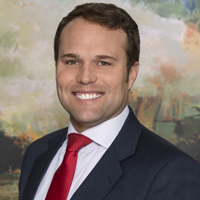
Christian Dennie Added to ADR Panels
August 26, 2016The NCAA Committee on Infractions Has Spoken: Stanford University
September 19, 2016The NCAA Committee on Infractions (“Committee” or “Panel”) recently issued its findings and found that Campbell University (“CU” or “Institution”) committed violations of NCAA legislation. The Panel considered this case through the cooperative summary disposition process in which all parties agree to the primary facts, violations and violation levels as fully set forth in the summary disposition report (“SDR”). Because the Institution agreed to the violations and penalties, there is no opportunity to appeal.
The Institution and the NCAA enforcement staff agreed two violations occurred in this case: 1) improper certification of eligibility; and 2) a failure to monitor. The parties agreed both violations were Level II.
With respect to eligibility certification, the parties agreed that from the 2010-11 through the 2014- 15 academic years, the Institution improperly certified 34 student-athletes in 10 sports resulting in 42 violations of progress-toward-degree legislation. The student-athletes had not met certain NCAA Bylaw 14 requirements. Specifically, they: (a) did not meet percentage-of-degree requirements; (b) failed to maintain the required minimum grade-point average (GPA); or (c) failed to complete 18 degree applicable hours in the previous two regular academic terms. Each student-athlete competed and received actual and necessary travel expenses. The Panel concluded the violation is Level II.
In regard to monitoring, the parties agreed that from the 2010-11 through the 2014-15 academic years, the Institution failed to monitor the eligibility certification of transfer student-athletes by continually misapplying progress-toward-degree legislation. Further, the Institution failed to address concerns raised by the conference office and the Institution’s compliance staff that the certifying officer lacked a proper understanding of relevant NCAA legislation. The Panel concluded the violation is Level II.
The Committee found that CU committed the following violations of NCAA legislation:
Violations of NCAA Division I Manual Bylaws 14.4.3.2 and 14.4.3.2.1 (2010-11 through 2014-15); 14.4.3.3 (2010-11 through 2013-14); 14.10.1, 14.11.1 and 16.8.1.2 (2010-11 through 2012-13); 14.9.1 and 14.10.1 (2013-14); 14.4.3.1-(b) and 16.8.1 (2013-14 and 2014-15); and 12.10.1 and 12.11.1 (2014-15)
The NCAA enforcement staff and Institution agreed that at least from the 2010-11 through the 2014-15 academic years, the Institution improperly certified 34 student-athletes in 10 sports, the majority of whom were transfers, resulting in 42 violations of progress-toward-degree legislation. As a result, the student-athletes competed and/or received travel expenses while ineligible.
From the 2010-11 through 2014-15 academic years, the Institution improperly certified 31 student-athletes who failed to fulfill percentage-of-degree requirements. As a result, the student-athletes competed and/or received travel expenses while ineligible. NCAA Bylaws 14.10.1, 14.11.1 and 16.8.1.2 (2010-11 through 2012-13); 14.4.3.2 and 14.4.3.2.1 (2010-11 through 2014-15); 14.9.1 and 14.10.1 (2013-14); 16.8.1 (2013-14 and 2014-15); and 12.10.1 and 12.11.1 (2014-15).
From the 2010-11 through 2013-14 academic years, the Institution improperly certified seven student-athletes who failed to fulfill minimum GPA requirements. As a result, the student-athletes competed and/or received travel expenses while ineligible. NCAA Bylaws 14.4.3.3 (2010- 11 through 2013-14); 14.10.1, 14.11.1 and 16.8.1.2 (2010-11 through 2012-13); and 14.9.1, 14.10.1 and 16.8.1 (2013-14).
In the 2013-14 and 2014-15 academic years, the Institution improperly certified three student-athletes who failed to complete 18 degree applicable hours in the previous two regular academic terms. As a result, the student-athletes competed and/or received travel expenses while ineligible. NCAA Bylaws 14.4.3.1-(b) and 16.8.1 (2013-14 and 2014-15); 14.9.1 and 14.10.1 (2013-14); and 12.10.1 and 12.11.1 (2014-15).
Violations of NCAA Constitution 2.8.1 (2010-11 through 2014-15)
The NCAA enforcement staff and Institution agreed that the scope and nature of the violations set forth above demonstrate the Institution failed to adequately monitor the eligibility certification of transfer student-athletes by continually misapplying progress-toward-degree legislation and failing to address concerns raised by the conference office and the compliance staff that the certifying officer lacked a proper understanding of relevant NCAA legislation.
Aggravating and Mitigating Factors in accordance with NCAA Bylaws 19.9.3 and 19.9.4.
Aggravating Factors for the Institution
19.9.3-(g): Multiple Level II violations by the Institution.
Mitigating Factors for the Institution
19.9.4-(g): The violations were unintentional, limited in scope and represent a deviation from otherwise compliant practices by the Institution.
19.9.4-(h): Other facts warranting a lower penalty range.
As a result of the foregoing, the Committee penalized CU as follows:
1. Public reprimand and censure.
2. One-year probationary period from August 11, 2016, to August 10, 2017.
3. The baseball team ended the 2016 season with the last scheduled regular season game and was banned from postseason competition.
4. The Institution shall vacate all regular season and conference tournament records and participation in which the ineligible student-athletes detailed above participated.
5. The Institution shall pay a $5,000 fine.
6. Baseball practice was reduced from 20 to 16 hours per week during the declared playing and practice season, as well as an additional required day off during the 2015-16 season.
7. Wrestling practice was reduced from 20 to 16 hours per week during the declared playing and practice season, as well as an additional required day off during the 2015-16 season.
8. Wrestling was subject to a 10 percent reduction in the playing and practice season and competition during the 2015-16 season.
9. Wrestling off-season hours were reduced from eight hours to four hours per week during the 2015-16 academic year.
10. Staff members responsible for eligibility certification shall attend an NCAA Regional Rules Seminar in 2017.
For any questions, feel free to contact Christian Dennie at cdennie@bgsfirm.com.

